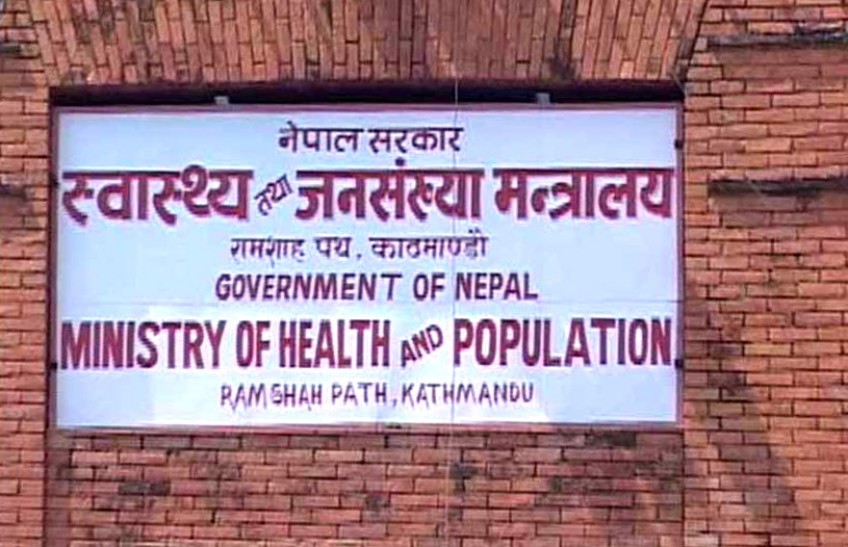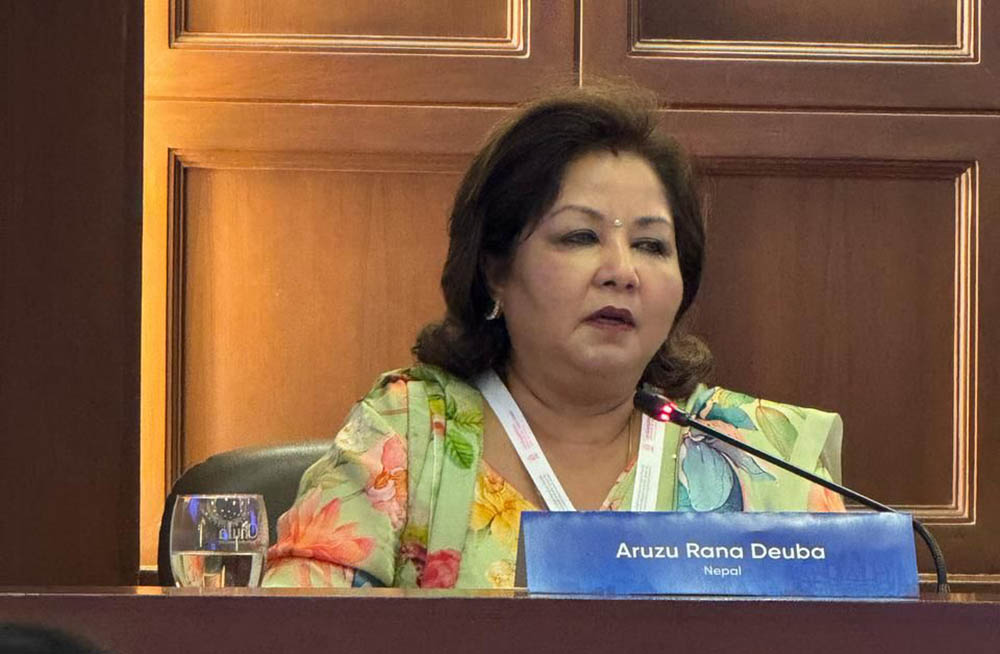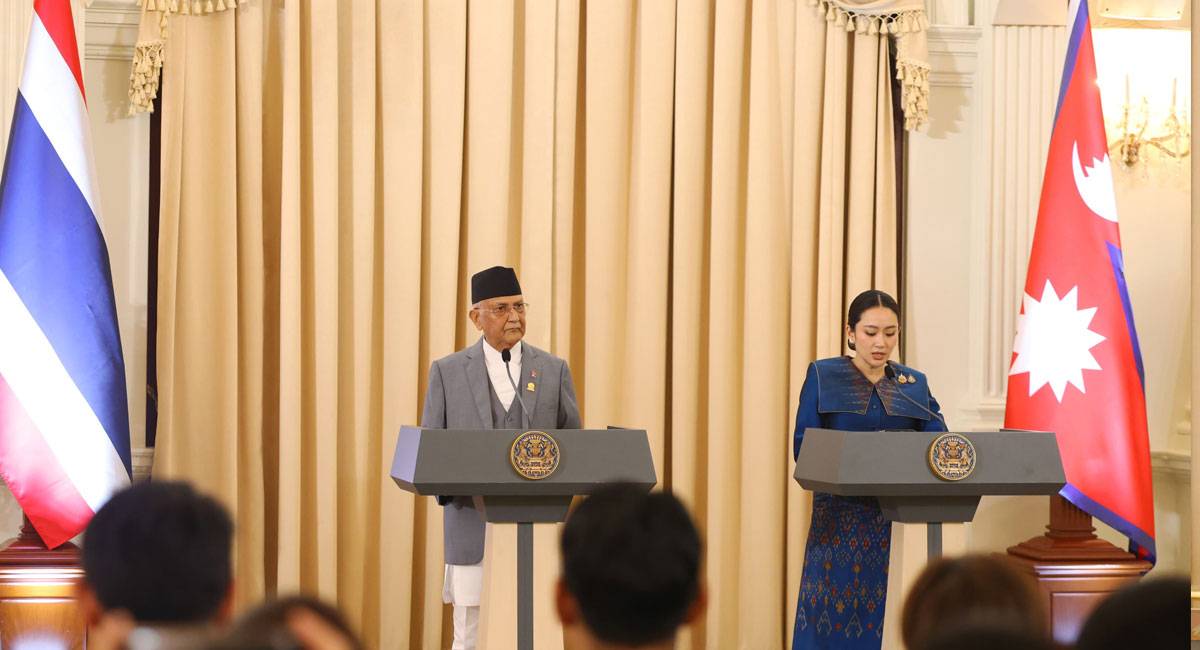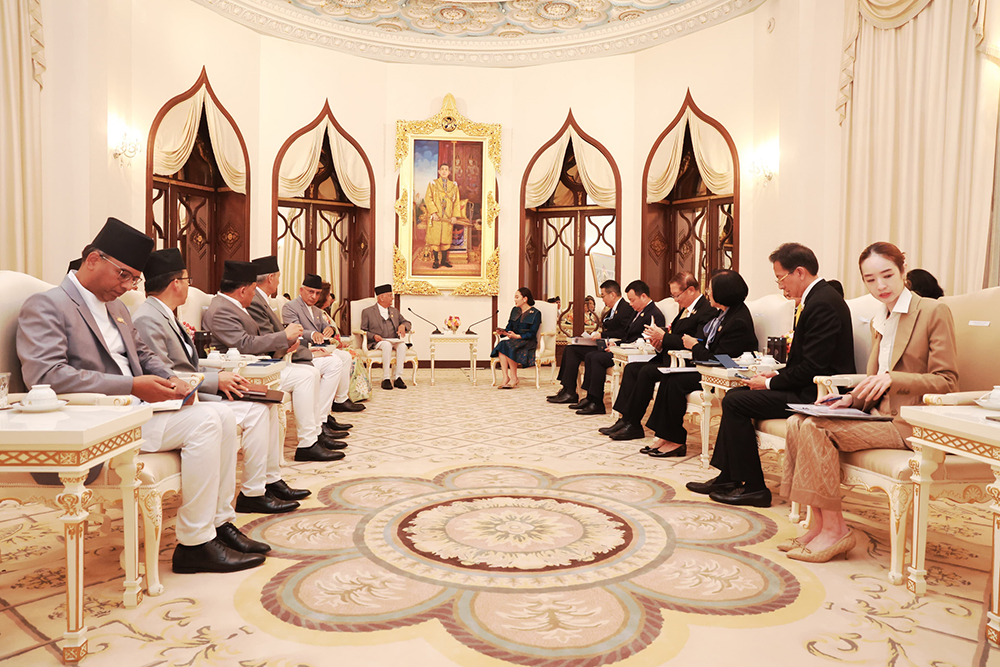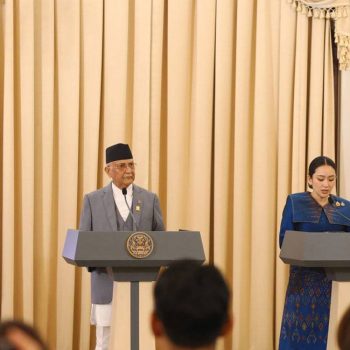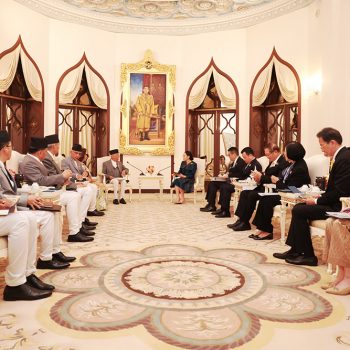The success story behind Bikash Nepal, founder of Nepal Foods
Nepal Foods bags four Great Taste 2024 awards, celebrating Nepali cuisine on the global stage
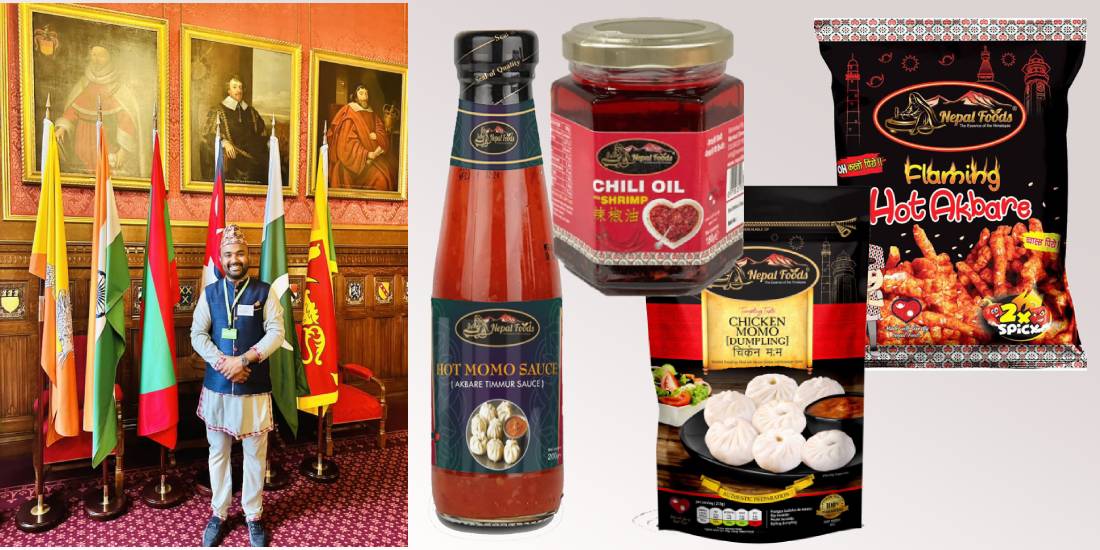
KATHMANDU: A Nepali food brand, Nepal Foods, has taken home four Great Taste 2024 Awards for its Hot Momo Sauce, Chilli Oil with Shrimp, Chicken Momo, and Flaming Hot Akbare. The Great Taste Award, awarded by the Guild of Fine Food, is considered one of the most prestigious awards in the food and drink industry.
More than 13,000 food products from 115 countries were put through this world’s largest food and drink award scheme. Among them, only 40 percent received the award.
Out of the four products presented by Nepal Foods, Hot Momo Sauce and Chilli Oil with Shrimp were awarded a Great Taste 2 Star, while Chicken Momo and Flaming Hot Akbare received a Great Taste 1 Star.
Nepal Foods produces more than 300 products, exports to 25 countries
Bikash Nepal, the man behind Nepal Foods, arrived in London in 2009 to pursue his master’s degree in Marketing. After completing his studies, he stayed in London until 2014 and initially marketed Indian products. Although his job was financially rewarding, Bikash gradually felt a lack of satisfaction. He began to envision promoting Nepali food products instead. Bikash then decided to import goods from Nepal and advance his business by marketing Nepali food items.
With his vision of promoting Nepali food items, Bikash started a marketing company, initially importing and selling products like Wai Wai noodles, Khukuri Rum, and Old Durbar Whiskey from Nepal. He is still the official distributor of these items in London.
However, Bikash was not content with just selling limited Nepali products. He wanted to ensure that all essential items for Nepali cuisine were available in every Nepali household in London. Realizing that importing goods from other companies alone would not suffice, he established Nepal Foods in 2018 to process and produce essential daily items such as lentils, rice, turmeric, spices, and tea leaves.
Today, Nepal Foods produces over 300 consumable products. Bikash has set up a factory in Tahachal, Kathmandu, providing direct employment to 17 people. Items restricted from being imported from Nepal are produced in London. Among the recent award-winning products, Chilli Oil with Shrimp and Chicken Momo are produced in London, while Hot Momo Sauce and Flaming Akbare Sticks are made in Nepal.
Though Nepal Foods was initially focused on producing goods in Nepal with London as a primary trade center, Bikash emphasizes that the company is no longer limited to London. “I initially aimed to reach every Nepali household in London with Nepal Foods. However, we are now present not only in London but also in Japan, Australia, the USA, and most European countries, reaching 25 countries in total. We are globalizing Nepali cuisine,” he said.
Demand for Nepali Products like ‘Jimbu’ and ‘Gundruk’ among Foreigners
Although Nepal Foods has previously won the Great Taste Award, this is the first time the company has won four awards in a single year. The high quality of its products, combined with attractive packaging and recognition from the Great Taste Award, has made Nepal Foods’ products widely accessible in renowned supermarkets and online platforms worldwide. “Nepal Foods is now available everywhere. When we first started, it was very challenging to get into the market, but that has changed. The hard work and the demand from customers have made our products more accessible. Even foreigners are now ordering traditional Nepali items like ‘Jimbu,’ ‘Gundruk,’ and pickles,” says Bikash, the founder of Nepal Foods.
Nepal Foods’ Upcoming Path and Challenges
One of the major challenges we face is explaining the costs of our products to customers. While complaints about prices have arisen within the Nepali diaspora, regular customers who appreciate the quality of our products rarely voice such concerns. However, it is our duty to clarify the reasons behind the pricing of these products.
Nepal Foods is dedicated to maintaining high quality, but comparisons with Indian products often miss key differences in production and logistics costs. For instance, Indian pickles might be priced at 60 rupees abroad, but importing Nepali pickles involves additional expenses such as packaging and transportation from Nepal to India. Despite these challenges, Bikash remains committed to globalizing Nepali cuisine. His goal is to reach both the Nepali diaspora and international communities, fueled by their hard work, the Great Taste Award, and positive customer feedback.



